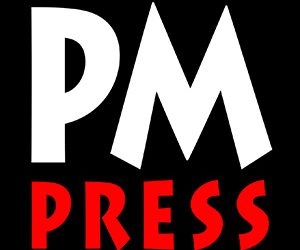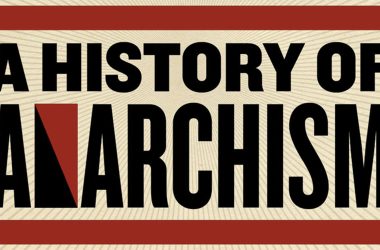Swimmers Club
May 12th, 2017

Factfile
Who: Ramsey Kanaan, PM Press
Where: USA, London and Canada
What: Independent press
Can you tell us a bit about how your press got started?
RK: PM emerged from the work (decades of it) that three folks who worked at AK Press had been doing over the years. Ie by the time PM came to be, we had a pretty good idea of what we wanted to do, and how to go about it, and how to make it even somewhat successful (whether such yardsticks are commercial viability, or political impact)…
How did the name come about?
RK: As a child of the internet age, when we were brainstorming names, in the late 2000s, pretty much every name (of the 100s we came up with), was already ‘taken’. Insofar as there was already a website of that name, or 3 bookstores on 3 continents, or whatever. One of the more clever names we came up with was Printed Matters (or variations thereof). Apparently lots of other folks have been just as clever, just ahead of us somewhat. So, having seen the utility of initials (AK Press is my mothers initials, from whence that name came from – and nope, her last name is not Kalashnikov), we just resorted to PM Press. The beauty of initials (somewhat) is that they can be all things to many folks, and at least don’t antagonize people as such.
What types of publications do you put out?
RK: Really good ones. Or at least, so we’d like to think. We actually publish on a pretty wide spectrum of topics – art, history, politics, fiction, culture et al – and formats (books, ebooks, CDs, DVDs, and audio and visual downloads), but they are all of a decidedly left wing (anarchist/Marxist and suchlike) bent, are all hopefully a carriage for ideas (and inspiration, education, and entertainment), and are our modest contribution to making the world a better place..
Can you tell us a bit about the space where you run your whole operation from? Is it an office space, a kitchen-table/bedroom operation or just from inside a smart-phone or a laptop?
RK: With 9 folks on the payroll, in 3 different countries (7 of us in the US, one in Canada, one in the UK), it’s fair to say that save Dan, who works in the warehouse in Oakland, we all work from home. Which is a blessing, and a curse. Particularly for my pre-school age twin boys.
Can you tell us a little bit about the city in which you are based and what influence, if any, it has on your press?
RK: The San Francisco Bay Area has 4 of us residing in it (though none of us actually live in San Francisco). That has influenced some of the publications we’ve done for sure, but no more than publishing books on the West Virginia Mine Wars (close to where one of us lives/works), or music by the English folk singers who changed my life (immeasurably for the better!) as a kid, or books on punk, that many of us grew up with.
Do you see any commonality with the world of independent record labels and independent presses? I suppose we’re thinking about how the two things share an independent spirit, small run fanzines/photocopied magazines, merchandising etc?
RK: Yup, I think the music ‘business’ (both major and indie), and the publishing ‘industry’ (again, on all levels) share a huge amount in common. Not least because they’re both collapsing (the music industry is about 5 years ahead on this curve), and most folks are not even willing to talk about it as such. But absolutely, that creative passion, married to the desire to communicate with others, has energized the production and dissemination of art, culture and politics for centuries now…
These days every writer can get connected to their own social-media channels and promote and publish their own work, what do you see as the best role for the independent publisher now? Or do you think not that much has changed?
RK: I think the role of the publisher hasn’t really changed that much since I’ve been involved (since the late 70s/early 80s, as a – very – young teenager. Firstly, the publisher acts as a curator. Ie how to get the good stuff. Secondly, the publisher’s job is to turn that good stuff into the best it can be (via editing/copyediting/proofing/design). And thirdly, and most crucially, the work of the publisher is to them get that work out into the world…i.e. the distribution/marketing/publicity.
Those concepts have been a constant/given, since I’ve been involved. The technologies in all three of those processes have changed markedly (and were doing so long before the internet was invented…I’m old enough to remember what a revelation the fax machine was – you could send a letter, or whatever, to America, and get a reply the next day!), most obviously in terms of production, and communication, but I think there’s a world of difference between literally doing it yourself, and having a publisher bring the above to any project.
Finally, please tell us a bit about a few of the next things that are due to come out?
RK: Since we publish almost a book a week on average, it’s a little tricky to highlight stuff that is about to come out. But having said that, I am very excited about some of our upcoming Fall titles, which include three majestic full color books – a compilation of the first 4 issues of (H)afrocentric comic, a glorious examination of the golden age of pulp fiction (from 1950 to 1980), and the second book in our series examining the ugly history of racism and white supremacy here in the US, through the ‘artifacts’ that that history has produced…




